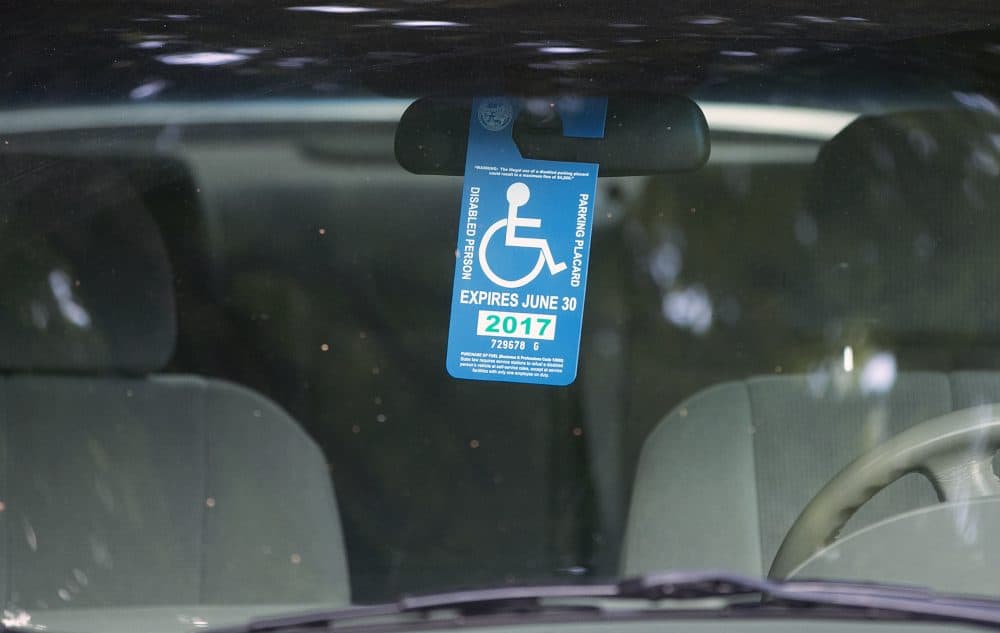Advertisement
New Mass. Law Cracks Down On Handicapped Parking Abuse

A new Massachusetts law is intended to crack down on people who fraudulently use handicapped license plates or placards to snag choice parking spaces.
Republican Gov. Charlie Baker marked the signing of the bill Monday, saying disabled parking spots should be reserved only for the state's most vulnerable citizens. The new law brings "clarity" to a problem he frequently hears about from municipal officials and advocates for the disabled, the governor added.
State Sen. Eileen Donoghue, a Lowell Democrat who sponsored the bill that won approval in the Legislature last month, said the goals was to stop abuse "so that people who need the placard, who need the space, can get it."
The measure imposes tougher fines for using a handicapped license plate or placard that was issued to a person who has since died - $500 for the first offense and $1,000 for each subsequent offense.
License suspensions imposed upon people who fraudulently display a handicapped plate or placard would be extended from 30 days to 60 days for the first offense, and from 90 to 120 days if it happens again.
The law also calls for a $50 fine on any driver who obstructs the expiration date or number of a handicapped placard.
The bill was spurred in part by a 2016 report by Glen Cunha, the state's inspector general, that found rampant abuse of access to handicapped parking, including placards that were being used to park for free all day at spaces near the driver's workplace and placards belonging to dead people.
Cunha praised the new law during the ceremony in Baker's office.
"This really does a number on people who want to abuse or defraud a very good government program for people who are some of the most vulnerable in society," he said.
The law also seeks to strengthen the authority of the Registrar of Motor Vehicles to ask for more medical information about why the driver needs a handicapped plate or placard and to investigate allegations that an individual has falsely obtained a plate or placard.